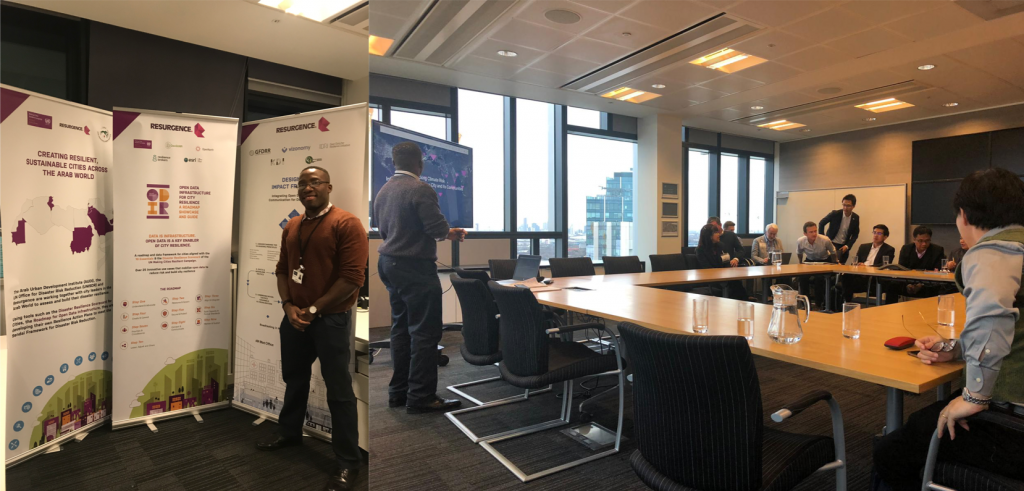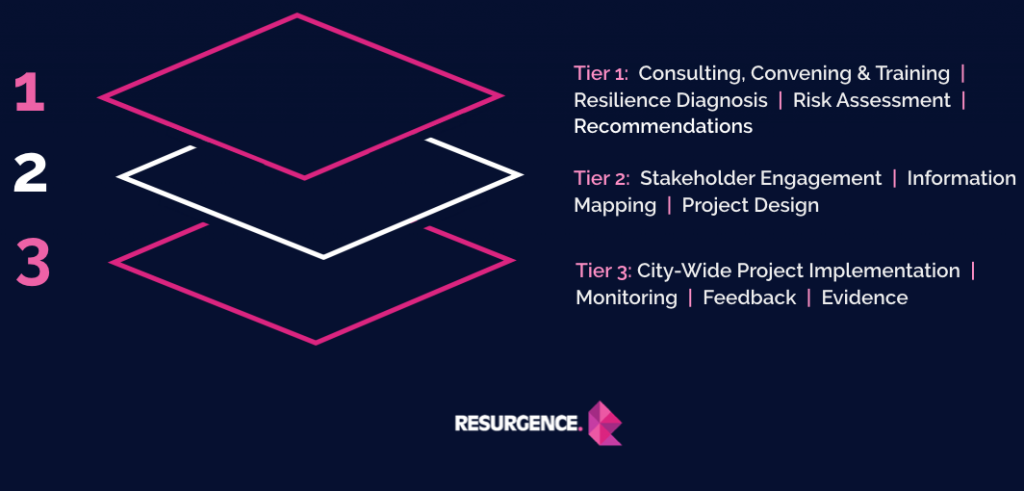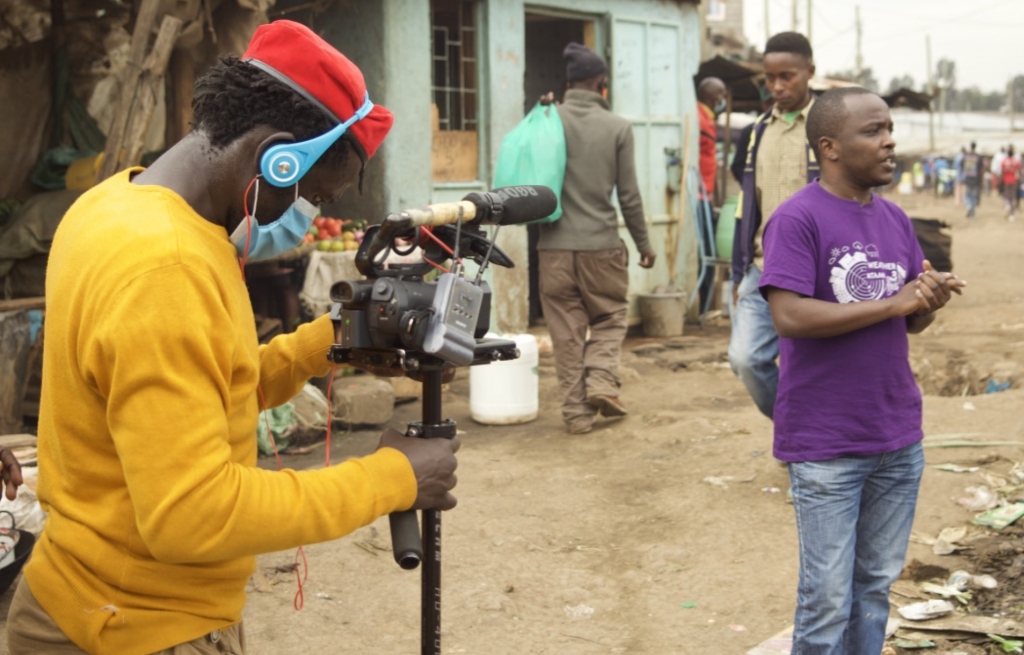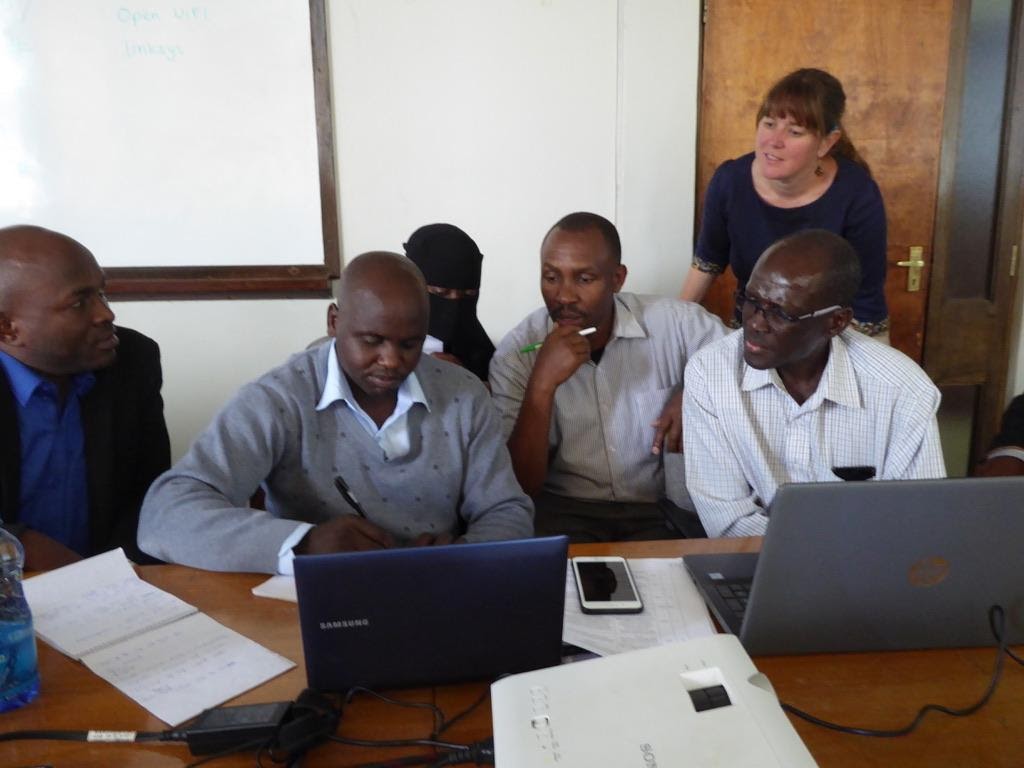Elevating resilience through open innovation: a Caribbean perspective
William Clare, Research Associate
I am a native of the Turks and Caicos Islands, which is a small low-lying archipelago in the Caribbean and an area highly vulnerable to the impacts of climate change. In the 2017 hurricane season, this became particularly evident when the region experienced two Category 5 hurricanes – Irma and Maria. According to the Overseas Development Institute, these hurricanes cost the area approximately £130 billion in losses. Working with Resurgence provided me with the opportunity to see if I could build on my academic background in climate change, exploring whether Resurgence had practical relevance to my homeland and the wider Caribbean region.
Three key questions need to be asked. The first of these is: how resilient is the Caribbean currently as a region? The response to this will vary according to the the town, city, country and local organisation you ask. My general impression is that there is a huge deficit in preparedness and response, and the 2017 hurricane season exposed many gaps in both.
The second question is: what is currently being done in the Caribbean? The best answer to this question can be found in detail in the Overseas Development Institute’s ‘Towards a more resilient Caribbean after the 2017 hurricanes’. This paper flags the need to link policymakers to the technical experts in academia and the private sector in order to implement better reconstruction programmes, as well as ensuring that future investments and development policies are risk-informed. The Institute emphasises the need for two actions:
- Creating a locally constructed and participatory process of stakeholder engagement
- Identifying the immediate capacity and knowledge gaps in order to initiative recovery plans, and creating a ‘mechanism’ within which to foster technical expertise, policy advice and research.
The devastation caused by the hurricanes led to the establishment of regional initiatives such as the Caribbean Climate Smart Accelerator. This involves celebrities like Sir Richard Branson, Usain Bolt, organisations like the Inter-American Development Bank, Caribbean governments and 40 private sector organisations to constitute a powerful, diverse and massive spectrum of stakeholders. With the objective of making the Caribbean the first climate-smart zone in the world, the initiative plans to build resilient countries, cities and industries through partnership between the private and public sectors. The main theme I identify within this is that collaboration is critical to success, enabling the development of solutions which can tackle climate change.
This leads me to a third question: what does this have to do with the Resurgence Urban Resilience Trust?
I spent five months helping Resurgence develop its business plan and scaling strategy with the support of the Climate-KIC, Europe’s leading climate innovation agency. From my early days there I felt a strong affinity with its mission: to improve resilience within cities worldwide. In order to understand how its products and services could be applicable in the Caribbean, I created a Business Model Canvas with an ideal scenario for successful market entry.

Through my work as a Research Associate and Stakeholder Engagement Lead, I learned about the value of collaboration and the convergence of civic and institutional actors. This is Resurgence’s key strength, a view reinforced through my consultations with other market actors. I worked with a small team to identify whether there was demand for the Resurgence product and services portfolio, and whether it was in alignment with the needs and interests of prospective clients and stakeholders. The unique strength and advantage that Resurgence possesses is its ability to convene market actors and stakeholders from all sides. Rather than being fixated on technological solutions, Resurgence enables a bridging of climate risk communication and data, by connecting stakeholders that produce climate data with their decision-making counterparts for more informed action.
What I really see Resurgence offering Small Island Developing States (SIDs) in the Caribbean is an elevated understanding of their current capacity and resilience capabilities, through the Disaster Resilience Scorecard and the Open Data Infrastructure Roadmap. The Open Data Infrastructure Roadmap could help SIDs create an infrastructure and culture of open data, providing guidance concerning practical actions which can be taken to support existing disaster resilience efforts. This would enable a centralisation of climate risk mapping and data standards to facilitate greater risk communication and innovative solutions. As such, I found a strong synergy between Resurgence’s work and that of the Caribbean Accelerator initiative. There’s also added value to be found in Resurgence’s ability to facilitate a gradual build up of resilience and capacities. As a small organisation, Resurgence can be strategically incorporated into a major consortium to support current and/or upcoming projects. All that is required is the facilitation of initial dialogue. As a Caribbean national, I believe that Resurgence would be a welcome addition for a region that has been declared a ‘hotspot’ for climate change.



